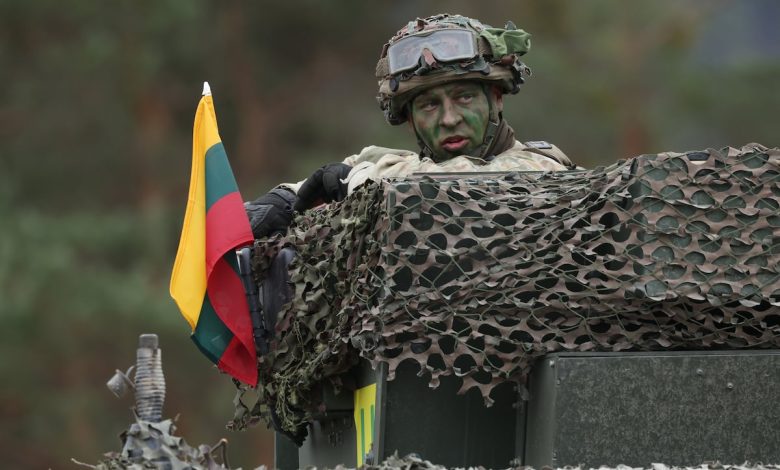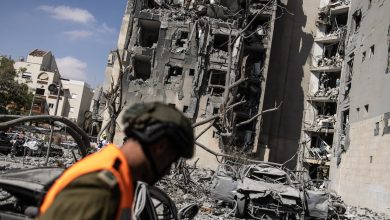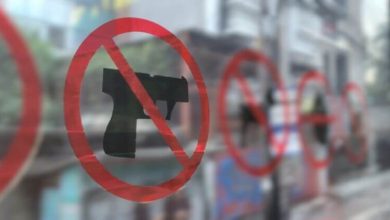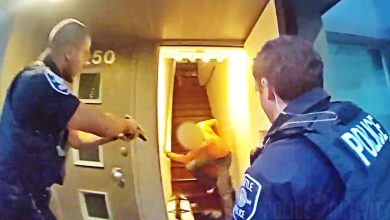Lithuania buys more weapons, beckons their makers to invest locally

WARSAW, Poland — Amid a surge in defense spending across Eastern Europe, Lithuania is advancing plans to purchase Leopard 2A8 tanks and CV90 infantry fighting vehicles while making efforts to attract investors that will develop its own defense industry.
Giedrimas Jeglinskas, the chairman of the Lithuanian parliament’s Committee on National Security and Defence, told Defense News the country’s authorities have decided to increase its level of military expenditure to between 5% and 6% of its GDP from 2026 to 2030.
This would place the nation atop of NATO in terms of spending. Similarly to the other two Baltic states, Estonia and Latvia, Lithuania has boosted its military expenditure in the aftermath of Russia’s invasion of Ukraine.
“Our capability target is a division that we need to arm to make it a reality, so we need to increase spending to speed up the development of divisional assets. We need tanks, infantry fighting vehicles, air defense and some other high-tech assets to ensure this division’s readiness,” Jeglinskas said.
“We need to arrive at the level which will allow us to deter potential aggression,”he added.
In December 2024, Lithuanian Defence Minister Dovilė Šakalienė inked a contract to buy 44 Leopard 2A8 tanks during an official visit to Germany. In Berlin, Šakalienė met with German officials to discuss issues related to the two nations’ defense cooperation, including the heavy maneuver brigade of 4,800 personnel that the German Armed Forces, the Bundeswehr, is to deploy to Lithuania in the summer of 2025. The move is designed to bolster NATO’s eastern flank.
Last year, the State Defence Council, Lithuania’s top defense decision-making body, authorized the country’s National Defence Ministry to also kick off the acquisition of tracked CV90s, which are made by BAE Systems Hägglunds.
In 2025, Lithuania’s defense spending is to total some €3.2 billion ($3.5 billion), or around 3.9% of the country’s GDP, according to data from the National Defence Ministry.
Alongside their work to equip the new Infantry Division with new gear, Lithuanian officials are also developing a program similar to Estonia’s initiative to lure weapon and ammunition makers to its Ämari military base.
As part of these efforts, Germany’s Rheinmetall is carrying out a project to build a new ammunition plant in Lithuania, and Vilnius hopes to attract more defense industry players.
The Lithuanian Ministry of Economy and Innovation “and the Ministry of National Defence are working tandem on the so-called Green Corridor to attract investors. Rheinmetall is one of those deals, and more producers are coming, as we’re holding talks with several manufacturers of explosives,” according to Jeglinskas, who represents the co-ruling Union of Democrats for Lithuania.
In November 2024, Rheinmetall launched the construction of a plant to make 155 mm artillery ammunition in Lithuania. Located in Baisogala, the factory is to commence operations in mid-2026. As part of the €180 million investment, around 150 jobs are to be created locally.
“A state-of-the-art production facility, including a shell manufacturing and load assembly pack, is being built in the municipality on an area of around 340 hectares,” the German company said in a statement. Once completed, the plant “will be able to produce tens of thousands of 155 mm calibre artillery shells per year.”
Jeglinskas said the Lithuanian government’s responsibility is to support potential investors with a wide range of assistance, including financial aid, to attract more defense-focused investments.
“It’s the government’s role; the government needs to put money into certain companies, and state capital is needed is push forward such investments that are of strategic importance to Lithuania and its security,” the lawmaker said.
Meanwhile, in Estonia, the country’s authorities are making efforts to settle producers of weapons, ammunition and equipment in different locations across the country. In addition to the defense industry park in Ämari, a larger defense park is to be made available for manufacturing projects by both domestic and foreign defense companies.
The national park’s location is yet to be decided. Public tenders to select investors are scheduled for 2025, representatives of the Estonian Centre for Defence Investments (ECDI), the country’s military procurement agency, told Defense News.
Jaroslaw Adamowski is the Poland correspondent for Defense News.







